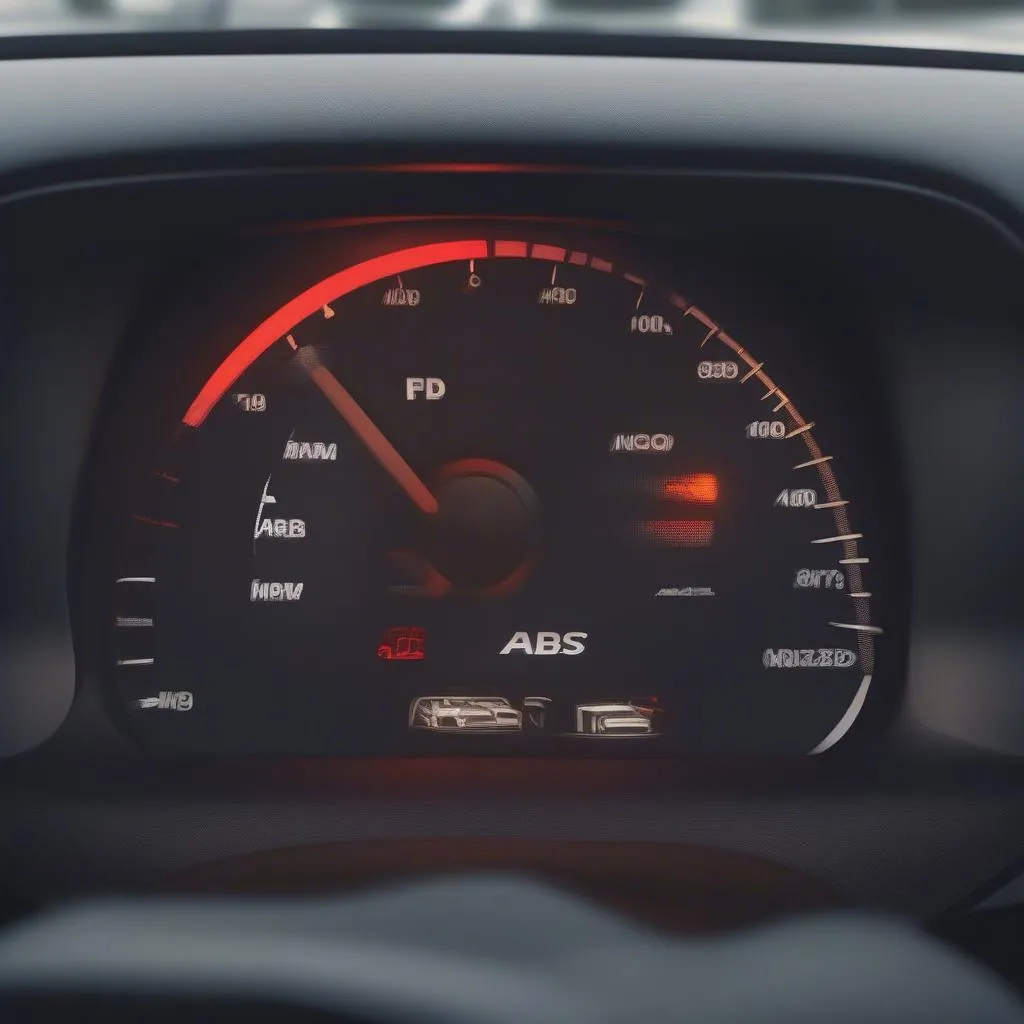Picture this: you’re cruising down Highway 1 in California, the Pacific Ocean glistening on your right. Suddenly, your anti-lock brake light flickers on, then off. A nagging feeling creeps in – is everything okay? Should you pull over? Don’t worry, you’re not alone. This is a common concern for many car owners, and we’re here to shed some light on this blinking mystery.
Decoding the Blinking Light
What Does the Anti-Lock Brake Light Mean?
The anti-lock brake system (ABS) is a crucial safety feature that prevents your wheels from locking up during hard braking, helping you maintain control of your vehicle. When the ABS light illuminates, it signals a potential issue within the system.
Why Does It Go On and Off?
An ABS light that intermittently turns on and off can be particularly perplexing. This behavior often suggests an intermittent fault within the ABS system. Let’s delve into some possible scenarios:
- Faulty Wheel Speed Sensor: Imagine driving a BMW 3 Series through the winding roads of the Swiss Alps. A wheel speed sensor monitors the rotational speed of each wheel, relaying this information to the ABS control module. A malfunctioning sensor, perhaps due to dirt or debris, can disrupt this data flow, causing the light to flicker.
- Loose or Damaged Wiring: Just like a frayed electrical cord in your house, damaged or loose wiring within the ABS system can cause intermittent communication failures, leading to the light acting erratically.
- Low Brake Fluid: Consider yourself driving a Ford F-150 across the Texan plains. Low brake fluid levels can trigger the ABS light. This could be due to worn brake pads or a leak in the brake system.
- Failing ABS Module: The ABS module is the brain behind the entire system. A failing module can exhibit various symptoms, including an inconsistent ABS light.
Troubleshooting the Issue
Experiencing a flickering ABS light? Don’t panic. Here’s what you can do:
- Check Your Brake Fluid: Pop the hood and inspect the brake fluid reservoir. If the fluid level is low, top it off and monitor the situation.
- Inspect for Visible Damage: Take a look at the visible wiring and components around your wheels. Are there any signs of damage, loose connections, or corrosion?
- Use a Diagnostic Scanner: A professional-grade diagnostic scanner, like those used at authorized dealerships, can communicate with your car’s computer system and pinpoint the source of the problem.
 Car Dashboard with ABS Warning Light
Car Dashboard with ABS Warning Light
Frequently Asked Questions
Can I still drive with the ABS light on and off?
While your car might seem drivable, it’s crucial to remember that a malfunctioning ABS system compromises your safety, especially during emergency braking. It’s best to address the issue promptly.
How much does it cost to fix an ABS light issue?
The cost of repair varies significantly depending on the underlying cause. A simple sensor replacement might cost a few hundred dollars, while a failing ABS module could set you back over a thousand.
Can I fix the ABS light myself?
While some DIY enthusiasts might be comfortable tackling minor repairs, it’s generally recommended to consult a qualified mechanic, especially for complex systems like ABS.
Need More Help?
Experiencing issues with your car’s electronics or diagnostics? We can help! Contact us on Whatsapp at +84767531508. Our team of auto repair experts is available 24/7 to provide support and guidance.
Related Articles:
We hope this article has shed some light on the mystery of the on-and-off ABS light. Remember, your safety is paramount, so don’t hesitate to seek professional help when needed. Safe travels!